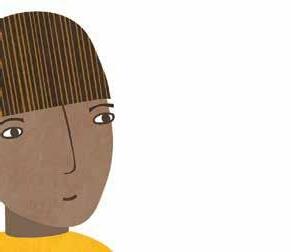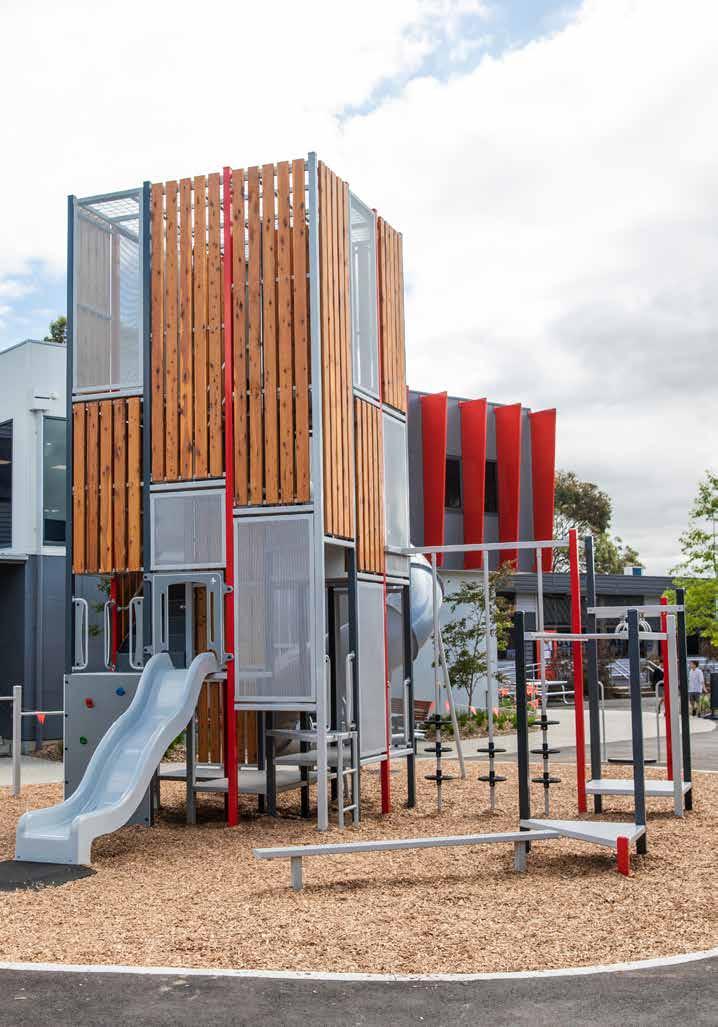
8 minute read
Child Safe Standard 7
Child Safe Standard 7 – Processes for complaints and concerns are child focused.
In complying with Child Safe Standard 7, an organisation must, at a minimum, ensure: 7.1 The organisation has an accessible, child focused complaint handling policy which clearly outlines the roles and responsibilities of leadership, staff and volunteers, approaches to dealing with different types of complaints, breaches of relevant policies or the Code of Conduct and obligations to act and report.
7.2 Effective complaint handling processes are understood by children and young people, families, staff and volunteers, and are culturally safe.
7.3 Complaints are taken seriously, and responded to promptly and thoroughly.
7.4 The organisation has policies and procedures in place that address reporting of complaints and concerns to relevant authorities, whether or not the law requires reporting, and co-operates with law enforcement.
7.5 Reporting, privacy and employment law obligations are met.
Source
Commission for Children and Young People. (2021, July 1). New Child Safe Standards start in Victoria on 1 July 2022 to better protect children. https://ccyp.vic.gov.au/news/new-child-safe-standards-start-in-victoria-on-1-july-2022-tobetter-protect-children/
Complaints processes
11.1 Schools and school boarding premises must ensure that processes for complaints and concerns are child focused.
11.2 In complying with clause 11.1, the school governing authority or school boarding premises governing authority must, at a minimum:
a. Develop a complaint-handling policy that is made publicly available and that is accessible, child-focused, culturally safe and easily understood by the school community or school boarding premises community, and clearly outlines: I. the process for making a complaint about the school or school boarding premises or the behaviour of any person within the school or school boarding premises (for example staff, volunteers, contractors, families, children or students); II. the roles and responsibilities of leadership, school staff, school boarding premises staff, and volunteers in relation to handling complaints; and III. the process for dealing with different types of complaints, breaches of relevant policies or the code of conduct and obligations to act and report. b. Ensure complaints are taken seriously and responded to promptly and thoroughly. c. Have policies and procedures in place that address reporting of complaints and concerns to relevant authorities, whether or not the law requires reporting, and cooperate with law enforcement.
d. Ensure recordkeeping, reporting, privacy and employment law obligations are met when responding to complaints and concerns. e. Have a clear procedure or set of procedures for responding to complaints or concerns relating to child abuse.
11.3 The procedures referred to in clause 11.2(e) must: a. Cover all forms of child abuse.
b. Be sensitive to the diversity and characteristics of the school community or school boarding premises community. c. Be made publicly available. d. Be accessible to children, students, staff, volunteers and the school community or school boarding premises community. e. Apply to complaints and concerns relating to child abuse made by or in relation to a child or student, school staff, school boarding premises staff, volunteers, contractors, service providers, visitors, or other persons while connected to a school environment or school boarding premises environment.
f. Identify the roles and responsibilities of school staff or school boarding premises staff and leadership to act and report on complaints and concerns relating to child abuse including: I. ensuring that the complaint or concern is taken seriously; II. promptly and thoroughly managing the response of the school or provider of school boarding services; III. responding appropriately to a child or student who raises or is affected by the complaint or concern; IV. monitoring overall compliance of the school or provider of school boarding services with the procedure; and
V. managing an alternative procedure for responding to the complaint or concern if any person allocated responsibility under clause 11.7(f) cannot perform their role. g. Include a statement that fulfilling the roles and responsibilities in the procedure does not displace or discharge any other obligations that arise if a person reasonably believes that a child is at risk of child abuse.
h. Clearly describe the actions the school or provider of school boarding services will take to respond to a complaint or concern relating to child abuse, including actions to: I. report allegations, suspicions or disclosures to relevant authorities, regardless of whether there is a legal obligation to report; II. protect any child or student connected to the complaint or concern relating to child abuse until the complaint or concern is resolved; and III. make, secure, and retain records of the complaint or concern and the response of the school or provider of school boarding services. 11.4 The procedures referred to in clause 11.2(e) must not:
a. Prohibit or discourage school staff, school boarding premises staff or volunteers from reporting a complaint or concern relating to child abuse to a person external to the school or school boarding premises. b. State or imply that it is the victim’s responsibility to inform the police or other authorities of an allegation relating to child abuse. c. Require school staff, school boarding premises staff or volunteers to make a judgment about the truth of a complaint or concern relating to child abuse. d. Prohibit school staff, school boarding premises staff or volunteers from making records in relation to a complaint or concern relating to child abuse.
Background
The new Child Safe Standard 7 emphasises the importance of processes for complaints being child focused and accessible to children and young people and their families, as well as staff and volunteers. Consistent with current Child Safe Standard 5, it requires organisations to have processes for responding to and reporting incidences of suspected child abuse.
The new Standard 7 makes explicit the obligations for organisations to: • Take complaints seriously, and respond to them promptly and thoroughly. • Co-operate with law enforcement agencies regarding complaints and concerns, and report to relevant authorities, regardless of legal obligation to report. • Have child focused complaints handling policies and processes, and compliance with privacy laws, reporting obligations and employment law. • Have complaints processes that are understood broadly (including by children young people, their families, staff and volunteers) and are culturally safe.
Source
Commission for Children and Young People. (2021b, July 1, p. 7). What’s changing?: Compare current and new Child Safe Standards. https://ccyp.vic.gov.au/assets/resources/New-Standards/Whats-changing-comparison-of-currentand-new-Child-Safe-Standards.pdf
The Northside Christian College Committee of Management has approved the Child Safety Policy, Code of Conduct and Procedure (Policy No. 1), which has a clear set of procedures for responding to allegations of suspected child abuse in accordance with the Ministerial Order and other legal obligations, including criminal offences regarding grooming, failure to disclose and failure to report. The Child Safety Policy, Code of Conduct and Procedure (Policy No. 1) for reporting and responding to suspected child abuse apply to all staff involved in childconnected work at Northside Christian College, including outside of school hours.
The policies and procedures for reporting and responding to suspected child abuse at Northside Christian College enable individuals to take the appropriate course of action to protect the safety of students.
Northside Christian College has a clear procedure for responding to allegations of suspected child abuse in accordance with Ministerial Order No. 1359 and other legal obligations. The Fact Sheets on the next few pages document reporting procedures in a way that is accessible to children, volunteers and the wider community.
During 2017, the College Executive Team approved the College’s Whistle Blower Policy (Policy No. 39). Northside Christian College is committed to achieving its business objectives while minimising the impact of significant risks that Northside Christian College can meaningfully and realistically control; protecting and enhancing its reputation; and behaving as a responsible and ethical corporate citizen. As such, the College recognises the value of transparency and accountability in its administrative and management practices, and supports the making of disclosures that reveal corrupt conduct, conduct involving a substantial mismanagement of resources, or that which involves substantial risk to public health and safety or the environment. It is policy at Northside Christian College that all staff, students, volunteers, parents and members of the College community shall be free to report concerns without fear of retaliation. They may wish to report activity occurring in College operations that they believe in good faith to be illegal, dishonest, unethical, fraudulent, or not in compliance with College policy.
Northside Christian College will: • Continually equip staff and volunteers in how to report and identify signs of risk. Where possible, staff and volunteers will be directed towards accessible training materials. • Publicise and make accessible avenues for reporting concerns for children and families. • Institute feedback processes for staff, volunteers, children and families on organisational policies and procedures. • Ensure children are safe, and that procedures for responding to alleged abuse are fair and focus on child safety, for example by suspending the alleged perpetrator or providing them with alternate duties pending investigation. • Provide support and comfort to a child reporting abuse or safety concerns, and never blame or interrogate a child. • Contact parents / carers as appropriate. • Provide ongoing support (e.g. helping them understand their rights and processes that will follow), and/or make referrals for support (e.g. counselling). • Review organisational child safe policies and procedures and organisational responses following an incident to help drive continuous improvement.
The College also has additional supporting policy documents: • Grievance and Complaints Management Policy (Policy No. 14) • Whistle Blower Policy (Policy No. 39) • Reportable Conduct Policy (Policy No. 49)
Cultural / Language / Disability Barriers
The College is aware that some people from culturally and/or linguistically diverse backgrounds may face barriers in reporting allegations of abuse. For example, people from some cultures may experience anxiety when talking with police, and communicating in English may be a barrier for some. Our College community needs to be sensitive to these issues and meet people’s needs where possible, such as having an interpreter present (who could be a friend or family member).
Some children with a disability may experience barriers disclosing an incident.




86 | Child Safe Strategy Document – Updated: December 2022


This 14 page resource is published on the College website.









